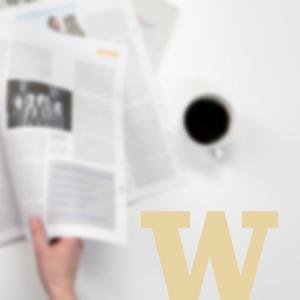Main Content

Congratulations to Larry Knopp, SIAS Professor Emeritus, who is leading an NSF funded project titled Examining Shifting Geographies of Historically Underrepresented Groups with co-PIs Dr. Michael Brown, UWS Geography Professor, and Dr. Bo Zhao, UWS Geography Assistant Professor. This 3-year project started in May 2020 and is being administered by UW Seattle’s Center for Studies in Demography & Ecology.
This project aims to construct, analyze, and make publicly available a geographically extensive, longitudinal data set of LGBTQ spaces in the U.S. The data set will be compiled from a purposive sample of annual entries (1965-2014) in the only extant annually published national-scale source listing LGBTQ venues since the mid-twentieth century (Bob Damron’s Address Book, later known as The Damron Men’s Travel Guide – published annually since 1965 – and its companion, the Damron Women’s Traveler – published annually since 1990). The data will then be analyzed spatio-temporally using spatial statistics and GIS. Specifically, the project team will analyze and visualize shifting locational patterns of entries by city, state, and region; changes in the entries themselves (including the appearance and disappearance of particular entries, types of entries, and descriptions); and relationships between these.
Upon completion of the project the data set will be hosted at the Harvard Dataverse, where it will be linked to an Open Science Framework (OSF) webpage with a wiki feature, maintained by us, making discussion and addition of new data from other sources possible.
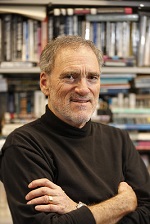
Congratulations to Michael Honey, SIAS Professor, who was named a 2020-21 Fellow in the Radcliffe Institute for Advanced Study at Harvard University. Radcliffe
Fellows are exceptional scientists, writers, scholars, public intellectuals, practitioners, and artists whose work is making a difference in their professional fields and in the larger world.
As a Radcliffe Fellow, Dr. Honey will write “They Never Can Jail Us All: A Personal History of Repression, Resistance, and the Freedom Struggle,” tracing his experiences as a conscientious objector to war in the 1960s and an organizer in the Southern freedom movement from 1970 through 1976. Honey will research the newly-accessioned files of Angela Davis in Harvard’s Schlesinger Library, as well as civil liberties and rights records at the Wisconsin Historical Society. He will also use Freedom of Information Act surveillance records of the Federal Bureau of Investigation (FBI). In 1970, it placed him on its “security index” to be arrested, along with thousands of other civil rights and anti-war activists, during a declared national emergency. This is a book project developed partly at UW Tacoma with Mary Gates Scholarship winner Casey Reynolds Wagner, undergraduate researcher.
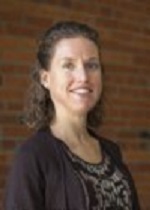
Katie Haerling, Nursing and Healthcare Leadership
Examining Theory-based Debriefing Practices after Virtual Simulation Experiences
Experiential learning is an essential component of all practice-based disciplines. Simulations, and more recently virtual simulations, are widely used as facilitated opportunities for learners to engage in interactive experiential learning. While decades of research have helped establish theory and best practices for facilitating learning through the experiential learning process in traditional simulation-based activities, there is limited research establishing how theory and best practices apply in the virtual environment. The primary purpose of this project is to deepen knowledge about effective strategies for debriefing after virtual simulation experiences – a vital but under-examined component of experiential learning that is key to unlocking the potential of virtual simulation in nursing and other practice-based fields.

Turan Kayaoglu, SIAS
Rethinking Islam and Human Rights: Voices from the Grassroots
Are Islam and human rights compatible? So far debate on this question has been confined to conservative jurists, reformist Islamists, and liberal scholars, all of whom focus on textual interpretations of specific Islamic sources and ignore grassroots Muslim voices. “Rethinking Islam and Human Rights: Voices from the Grassroots” aims to recast this debate by asking how Islamic human rights non-governmental organizations (NGOs) protect and promote human rights. Specifically, the proposed project explores how grassroots activists utilize human rights and, in the process, reconcile Islam and human rights in their human rights activism.
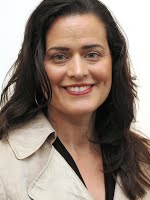
Julia Aguirre, Education
Collaborative Research: Advancing Equity and Strengthening Teaching with Elementary Mathematical Modeling (EQ-STEMM)
National Science Foundation (NSF)
EQ-STEMM focuses on equity-centered professional development (PD) designed to improve mathematics teaching and learning through mathematical modeling (MM) in grades K-5. MM gives students equitable access to complex problem solving, quantitative reasoning and communication skills required for participation in STEM-related disciplines and civic engagement (English & Sriraman, 2010; Lesh & Zawojewski, 2007). Project goals are to a) increase equitable participation and learning of mathematical modeling for culturally and linguistically diverse children; b) develop and test tools and resources to strengthen MM instruction that leverages students’ lived experiences and cultural funds of knowledge; and c) develop and refine a model for an innovative practice-based PD that includes on-line hybrid learning spaces for teachers in diverse settings.

Maureen Kennedy, SIAS
Quantitative methods for fuel characterization and management
US Forest Service, US Department of Agriculture (USDA)
This project is funded through a Joint Venture Agreement (JVA) that supports the productive collaboration between the Division of Science and Mathematics (SAM) in the School of Interdisciplinary Arts and Science (SIAS) at the University of Washington Tacoma and the Fire and Environmental Applications (FERA) team in the Pacific Wildland Fire Sciences Laboratory, PNW Station. The mission of FERA is to inform management of natural resources through research and development in fuels and combustion science, fire and landscape ecology, and integration of the physical and ecological sciences. This JVA continues and expands on the existing collaboration that has existed between FERA and the UW to an explicitly interdisciplinary context on the Tacoma campus, with an emphasis on advanced and innovative quantitative techniques for data analysis and model development.
This research collaboration also aims to provide opportunities for undergraduate research and for undergraduates to develop relationships with a federal government agency, exposing them to the practice of science to inform management in a government agency.
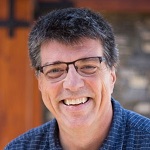
Joel Baker, Center for Urban Waters
Technology Assessment Protocol – Ecology
Washington State Department of Ecology
The Technical Assessment Protocol – Ecology (TAPE) program provides verification and certification of Manufactured Treatment Systems (MTDs) used to treat storm water in Washington State. Using MTDs with TAPE-program approval assists permittees in achieving and maintaining permit compliance and helps to ensure that local funds are not expended on products that do not provide a water quality benefit. Investigators at UW Tacoma’s Center for Urban Waters will work with Ecology to accept and review applications, review and respond to the submitter of Quality Assurance Project Plans (QAPPs) and Technical Evaluation Reports (TERs), maintain and edit the TAPE guidance manual, attend meetings with potential applicants, manage the Board of External Reviewers (BER), and other activities to keep TAPE moving forward.
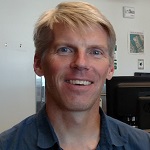
Andy James, Center for Urban Waters
King County Wastewater Effluent Discharge Assessment – Impact to Marine Organisms
Washington State University (WSU)/King County Department of Natural Resources and Parks
Dr. James and Center for Urban Waters project staff will perform sampling and analysis to support the characterization of impacts from wastewater-associated chemicals on important marine species in Puget Sound. This will include sampling and analysis of wastewater treatment plant effluent (Brightwater, West Point, and South Plant), five estuarine water locations in Puget Sound, and water and tissue from controlled exposure studies. The project team will analyze water and fish tissue samples for a fish exposure study being performed by WSU and NOAA personnel at the WSU Puyallup research facility. Quantification of chemical occurrence in water and tissue samples will be provided for those compounds for which there are existing calibration standards available at the Center for Urban Waters facilities.

Marc Nahmani, SIAS
Uncovering the Presynaptic Function of Autism Spectrum Disorder-Associated Protein GRIP1
M. J. Murdock Charitable Trust Foundation
This M. J. Murdock Charitable Trust Partners in Science grant will partner University of Washington Tacoma Assistant Professor Marc Nahmani with Margaret Walter of Stadium High School. A primary goal of Partners in Science awards is to provide high school teachers with opportunities to work on innovative science, and thus to revitalize their teaching and help them to appreciate the use of inquiry-based methods in the teaching of science. The program enables teachers and academic scientists to collaborate in the advancement of science, with the goal that both will grow professionally in the process. High school teachers begin to see themselves as scientists as well as being an integral part of the scientific community. Teachers will be a part of a cohort of teachers forming a professional learning community and will present their research at a national science conference in January after each summer of research. Faculty mentors benefit from research assistance and contact with those shaping their future students. All partners develop broader understanding of the linkages between high school and college science education.
More specifically, Ms. Walter will be submersed in hands-on experimentation guided by Dr. Nahmani to investigate the distribution of the ASD-related protein GRIP1 within excitatory and inhibitory presynaptic boutons, and to determine whether homeostatic plasticity effects the amount of presynaptic GRIP1.
Professor Ka Yee Yeung’s research is about making life easier for researchers working with big data. Now, she has become the first UW Tacoma faculty member honored as the Virginia & Prentice Bloedel Professor. She is using the endowment to give more students experience in research.
Joel Baker, Science Director for the Center for Urban Waters, is quoted in an article the examines the testing and processing of the Tagro fertilizer produced by the City of Tacoma.
Shailendra Pratap and Shalini Sarin Jain have co-authored a groundbreaking book titled Managing Brand Transgressions: 8 Principles to Transform Your Brand, offering a comprehensive roadmap for navigating brand crises, with numerous real-world case studies from the past 50 years.
The U.S. has more mass shootings than anywhere else in the world, but there is something that can be done about it, says Dr. Eric Madfis, director of the Violence Prevention & Transformation Research Collaborative.
The Violence Prevention and Transformation Research Collaborative, led by Dr. Eric Madfis, is calling for a new approach to prevent and assess threats of school and other mass violence.
More Stories

